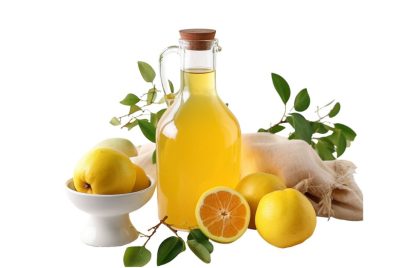Is Cranberry Juice Acidic?
Another question that comes up online often is about the acidity of various juices, and one that frequently comes up in conversations is cranberry juice. Cranberries are known for their vibrant red color and tangy taste, which leads many to wonder, “Is cranberry juice acidic?” In this post, we will explore the acidity of cranberry juice, its health benefits, potential risks, and offer some helpful suggestions on incorporating this delightful beverage into your diet.
Introduction to the Acidity in Foods
Understanding the acidity or alkalinity of what we consume is crucial, particularly for those of us with specific dietary needs or preferences.
Definition of acidity
Simply put, acidity refers to the quantity of acid present in a substance. But how do we measure this?
How the acidity is measured?
That’s where the pH scale comes into play. This is a measure from 0 to 14, where 7 is considered neutral, below 7 is acidic, and above 7 is alkaline.
Delving into the World of Cranberries
Before getting into the nitty-gritty of acidity, let’s get to know our star of the day, the cranberry.
The Nutritional Profile of Cranberries
Apart from their tangy flavor, cranberries are loaded with essential nutrients and antioxidants. They are known for their high vitamin C content and their potential urinary tract health benefits.
1. Juicing
Juicing has gained immense popularity as a convenient and tasty way to consume essential nutrients. Cranberry juice, in particular, has emerged as a popular choice due to its potential health benefits. However, concerns about its acidity level often leave people wondering if it is a suitable addition to their diets.
2. What is Cranberry Juice?
Cranberry juice is derived from the vibrant red cranberries, which are native to North America. These berries are loaded with vitamins, minerals, and antioxidants, making them a nutritious choice for juicing enthusiasts. Cranberry juice is widely available in stores, but it can also be freshly prepared at home using a juicer or blender.
3. The Acidity of Cranberry Juice
Cranberry juice is considered acidic due to its low pH level. The pH scale ranges from 0 to 14, with 0 being highly acidic, 7 being neutral, and 14 being highly alkaline. Cranberry juice typically falls within the pH range of 2.3 to 2.5, which is moderately acidic.
4. pH Level of Cranberry Juice
The pH level of cranberry juice can vary slightly depending on factors like the ripeness of the cranberries and the processing methods used. Generally, it is advisable to check the product label or refer to the manufacturer’s website for the specific pH level.
5. Health Benefits of Cranberry Juice
Despite its acidity, cranberry juice offers an array of health benefits that make it a worthwhile addition to your diet.
Antioxidant Properties: Cranberries are rich in antioxidants, such as flavonoids and polyphenols, which help combat oxidative stress and neutralize harmful free radicals in the body.
Urinary Tract Health: Cranberry juice is renowned for its potential to support urinary tract health. It contains compounds that may prevent certain bacteria from adhering to the urinary tract walls, reducing the risk of infections.
Heart Health:The antioxidants in cranberry juice may contribute to heart health by reducing inflammation and supporting healthy blood circulation.
Immune System Boost: The vitamin C content in cranberry juice can provide a boost to the immune system, helping the body defend against infections.
6. Potential Risks of Consuming Cranberry Juice
While cranberry juice offers numerous health benefits, there are some potential risks to consider.
Interaction with Medications: Cranberry juice may interact with certain medications, especially blood thinners like warfarin. If you are taking any medication, it’s essential to consult your healthcare provider before regularly consuming cranberry juice.
Acid Reflux and Heartburn: Due to its acidity, some individuals may experience acid reflux or heartburn when consuming cranberry juice, particularly on an empty stomach or in large quantities.
7. Tips for Reducing Cranberry Juice Acidity
If you enjoy cranberry juice but are concerned about its acidity, here are some helpful tips to mitigate its impact:
Dilution with Water or Other Juices: Mix cranberry juice with water or blend it with milder, less acidic juices like apple or pear juice.
Adding Baking Soda: A pinch of baking soda can help neutralize the acidity of cranberry juice, making it gentler on your stomach.
Blending with Alkaline Ingredients: Create a balanced and less acidic juice by blending cranberries with alkaline ingredients like spinach or cucumber.
8. Other Juices for Health
If you’re looking to explore alternative juices with health benefits, consider incorporating the following options into your diet:
Lemon Juice: Lemon juice is rich in vitamin C and can aid digestion and support detoxification.
Orange Juice:Packed with vitamin C and essential minerals, orange juice is known for its immune-boosting properties.
Apple Cider Vinegar: Although acidic itself, apple cider vinegar is believed to have various health benefits, including aiding weight loss and controlling blood sugar levels.
Pomegranate Juice: Pomegranate juice is a great source of antioxidants and has been associated with heart health.
Aloe Vera Juice: Aloe vera juice is known for its soothing properties and can help support digestive health.
9. Personal Experiences with Cranberry Juice
As a juicing enthusiast, I have personally enjoyed cranberry juice for its refreshing taste and potential health benefits. However, it’s important to listen to your body and consume cranberry juice in moderation, especially if you have any underlying health conditions.
10. Conclusion
In conclusion, cranberry juice is indeed acidic due to its low pH level. Despite its acidity, it offers numerous health benefits, such as being a rich source of antioxidants and supporting urinary tract health. However, it may not be suitable for everyone, especially those on certain medications or with sensitive stomachs.
By following the tips provided, you can enjoy cranberry juice while minimizing its acidity’s potential side effects. Additionally, exploring other healthful juices can add variety and enhance your overall juicing experience.
FAQs (Frequently Asked Questions)
- Is cranberry juice good for urinary tract infections?
- Yes, cranberry juice has compounds that may help prevent certain bacteria from causing urinary tract infections.
- Can I drink cranberry juice every day?
- It’s generally safe to consume cranberry juice in moderation, but excessive consumption may lead to stomach discomfort for some individuals.
- Does cranberry juice help with weight loss?
- While cranberry juice may support overall health, it’s not a standalone solution for weight loss. A balanced diet and regular exercise are crucial for weight management.
- Are there any alternatives to cranberry juice for urinary tract health?
- Yes, other options like blueberry juice and hibiscus tea have also been associated with supporting urinary tract health.
- Can I give cranberry juice to children?
- It’s best to consult a pediatrician before giving cranberry juice to children, especially if they have any health conditions or are taking medications.
Remember, while cranberry juice can be a delightful addition to your juicing routine, individual experiences may vary. Always prioritize your health and make informed choices when incorporating any new beverage into your diet.
Please remember that while juicing can be a part of a healthy diet, it should not replace whole foods and a balanced diet. Always consult with a healthcare provider or a registered dietitian for personalized advice. Cheers to your health and happy juicing!
Here are two scientific references around the subject:
- “Cranberries and their bioactive constituents in human health.” This article on the National Institutes of Health’s PubMed Central discusses the nutritional content of cranberries and their health benefits, such as aiding urinary tract health.
- “Acidic and Alkaline Foods and Drinks and the pH Scale” This Healthline article provides information on the pH scale, which was used to measure the acidity of cranberry juice in the article.




